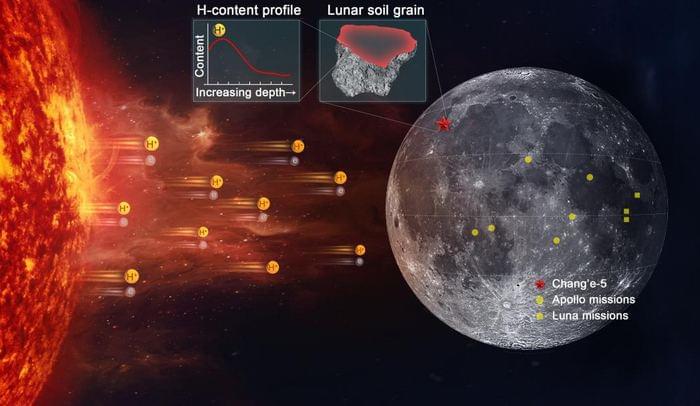Water on the Moon has been a hot topic in the research world lately. Since its first unambiguous discovery back in 2008. Since then, findings of it have ramped up, with relatively high concentration levels being discovered, especially near the polar regions, particularly in areas constantly shrouded in shadow. Chang’e 5, China’s recent sample return mission, didn’t land in one of those permanently shadowed areas. Still, it did return soil samples that were at a much higher latitude than any that had been previously collected. Now, a new study shows that those soil samples contain water and that the Sun’s solar wind directly impacted that water.
The amount of water on the lunar surface varies widely both based on the time of the lunar day and the latitude it is located at. There is so much variability that the water content of the lunar soil can be 200 ppm higher or lower at different times of the day. With that much variability, it seems clear that the Sun plays a significant role in the hydrological cycle there is on the Moon.
Part of that role is controlling the type of hydrogen embedded into the lunar soil. Since the Moon has almost no atmosphere to speak of, the charged hydrogen particles that make up the solar wind can directly interact with the top regolith layer on the lunar surface. When they do so, they leave behind a distinct sign that they do – a large amount of hydrogen atoms with very little deuterium.
